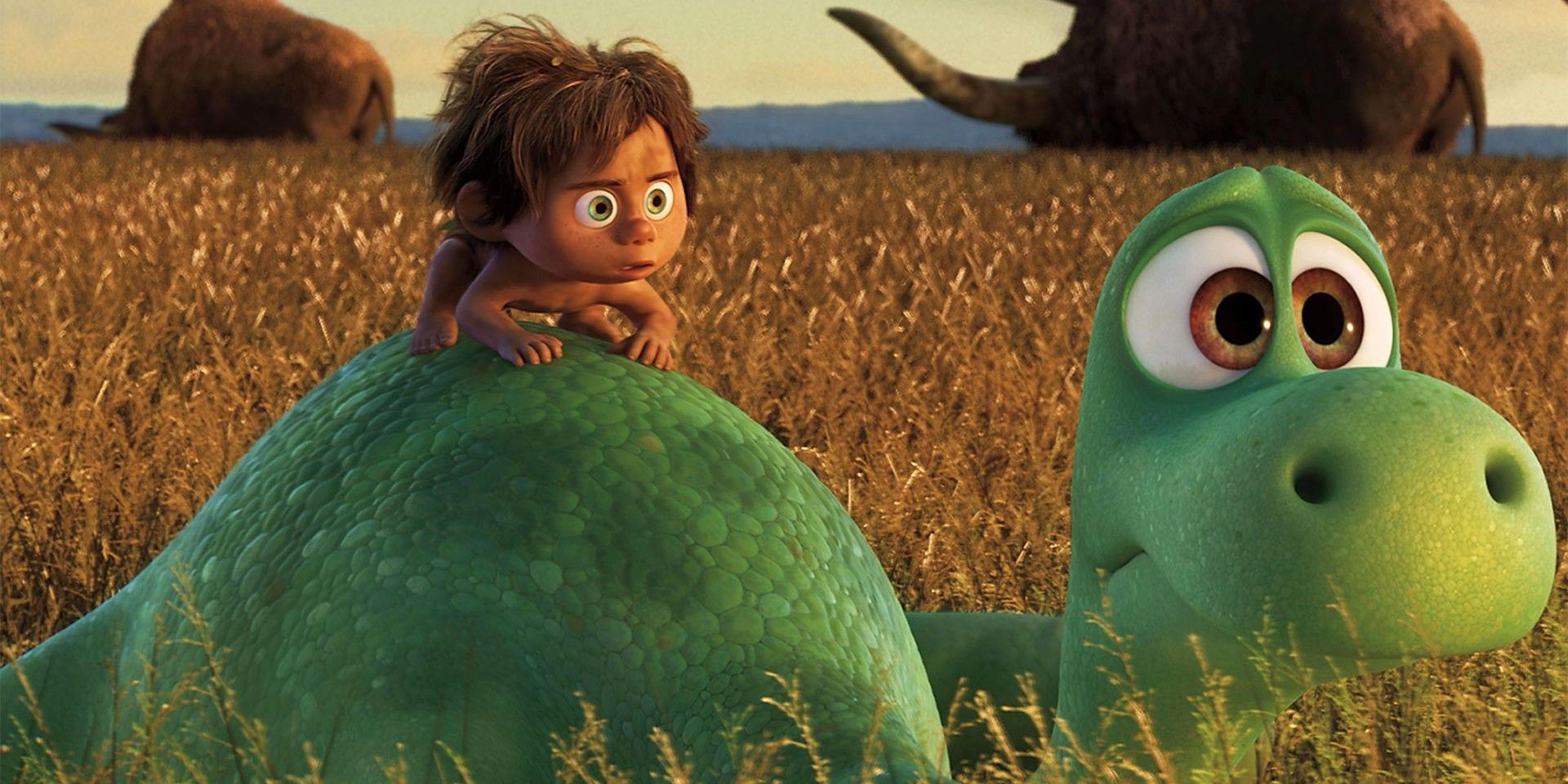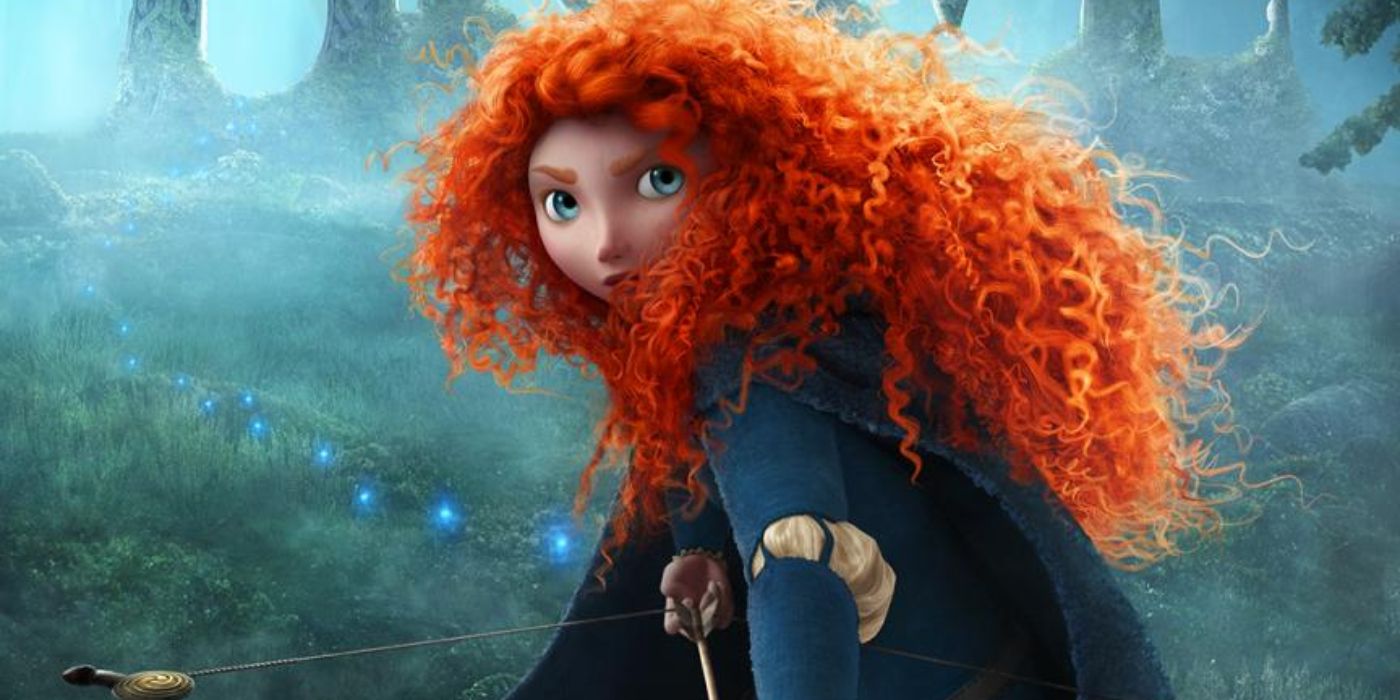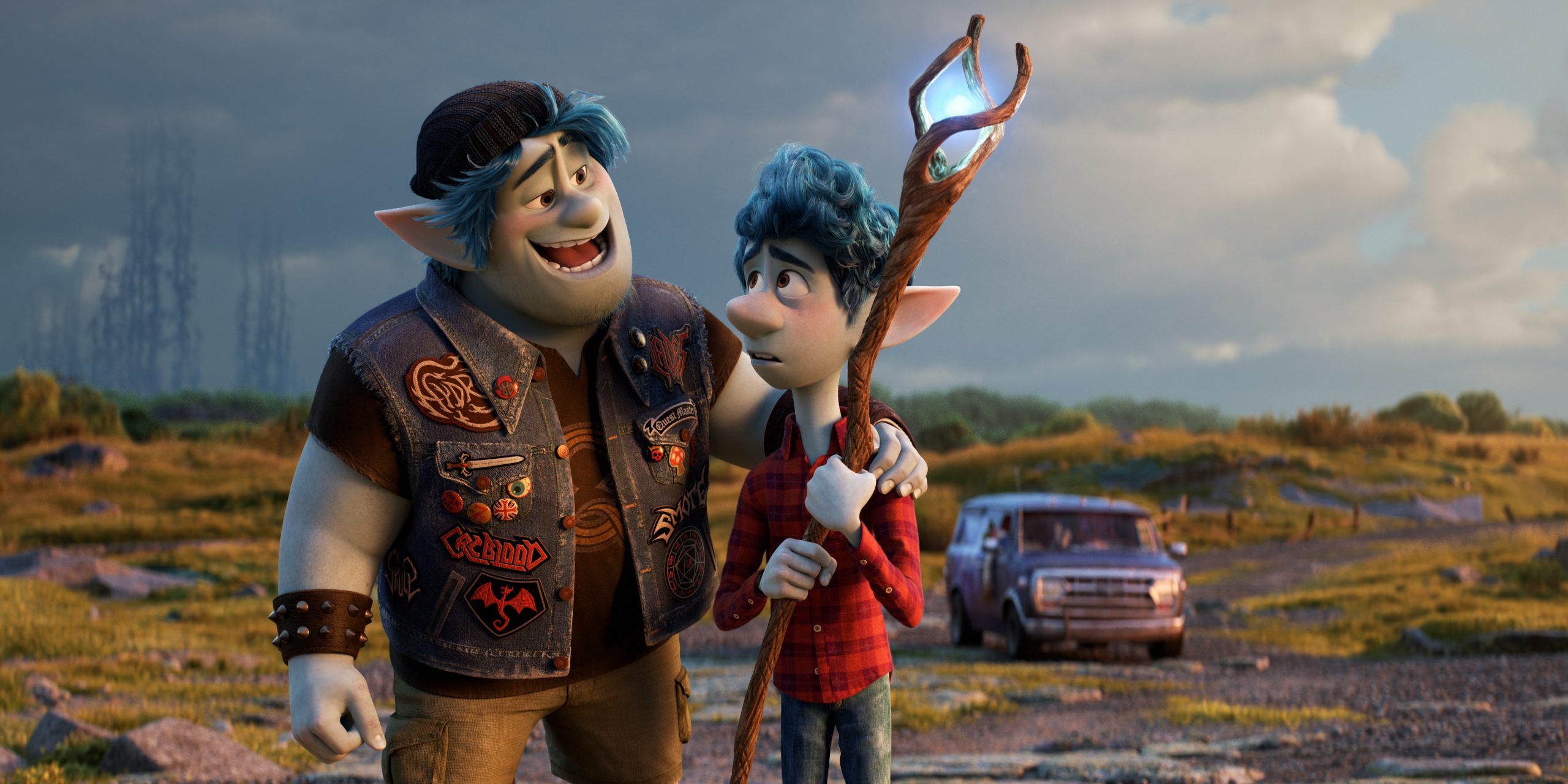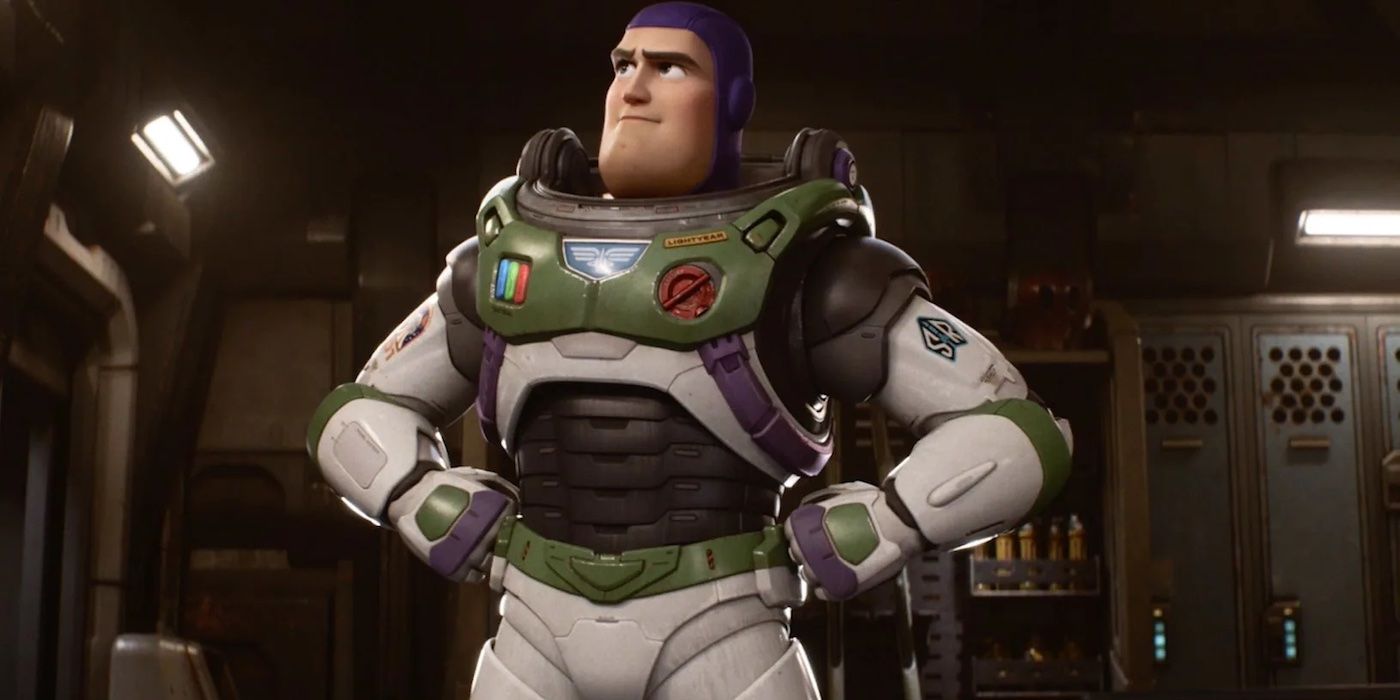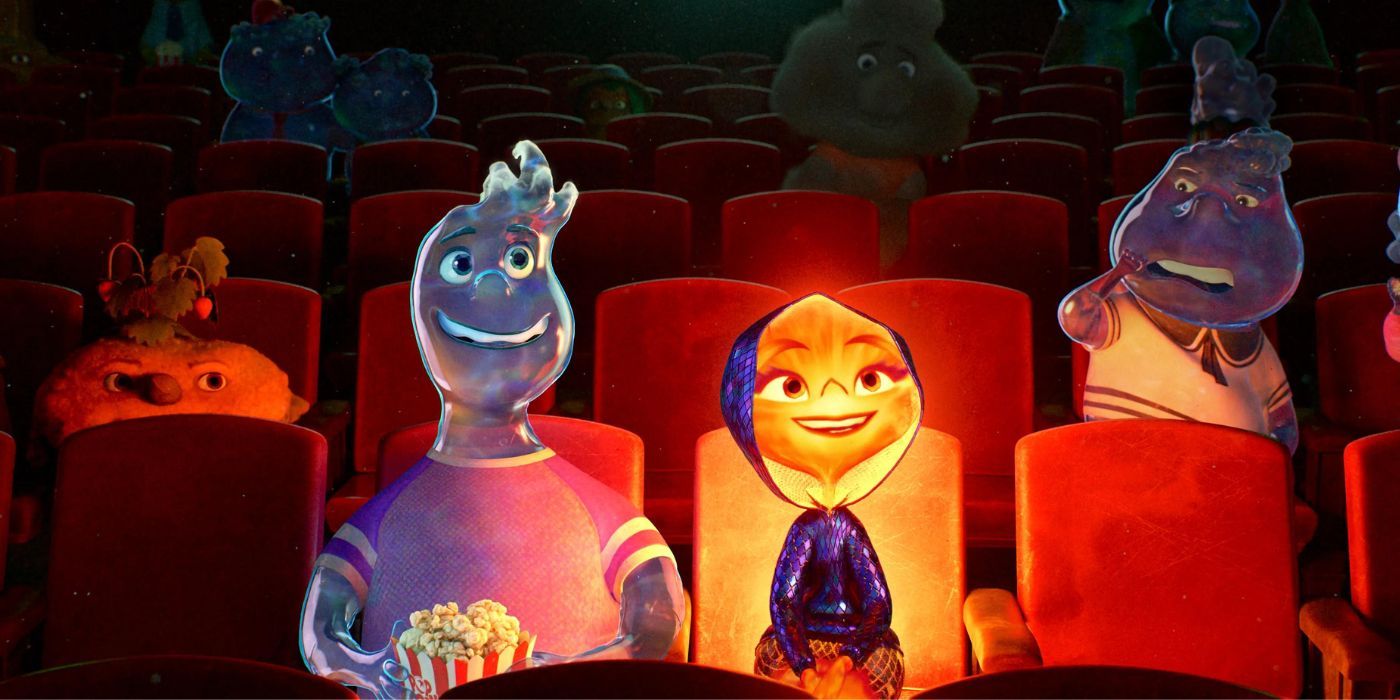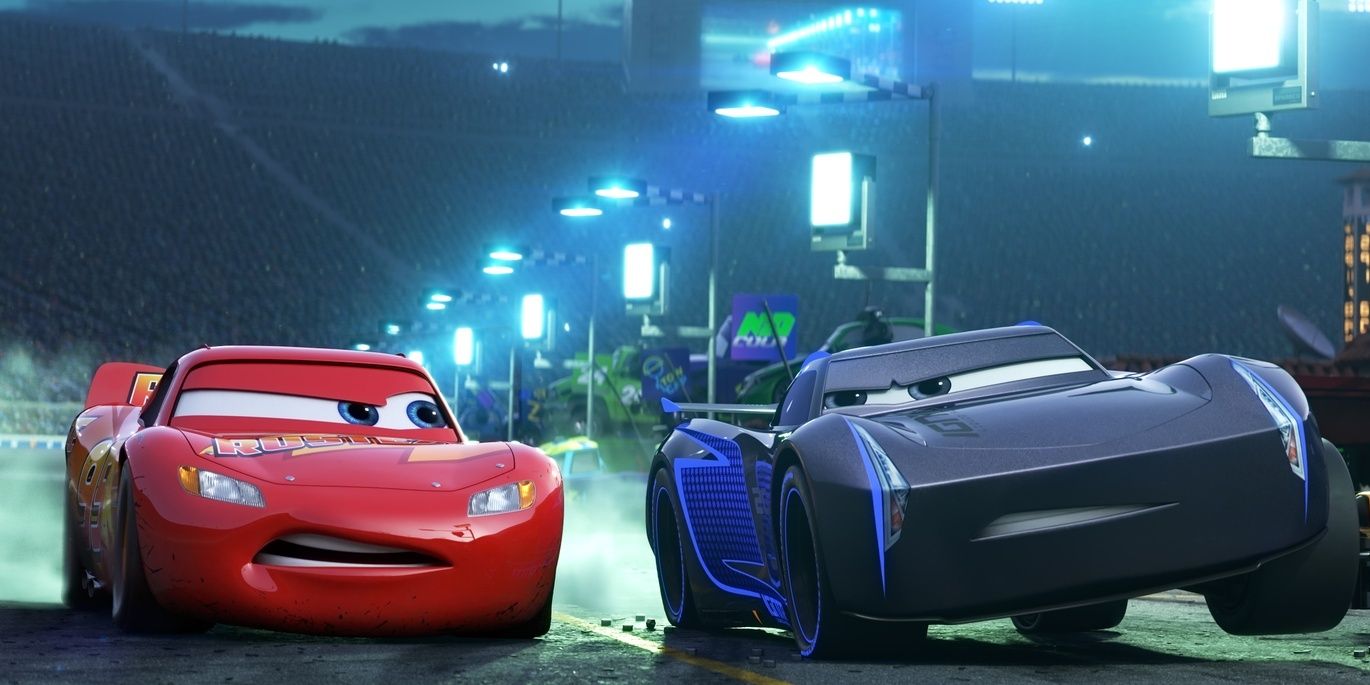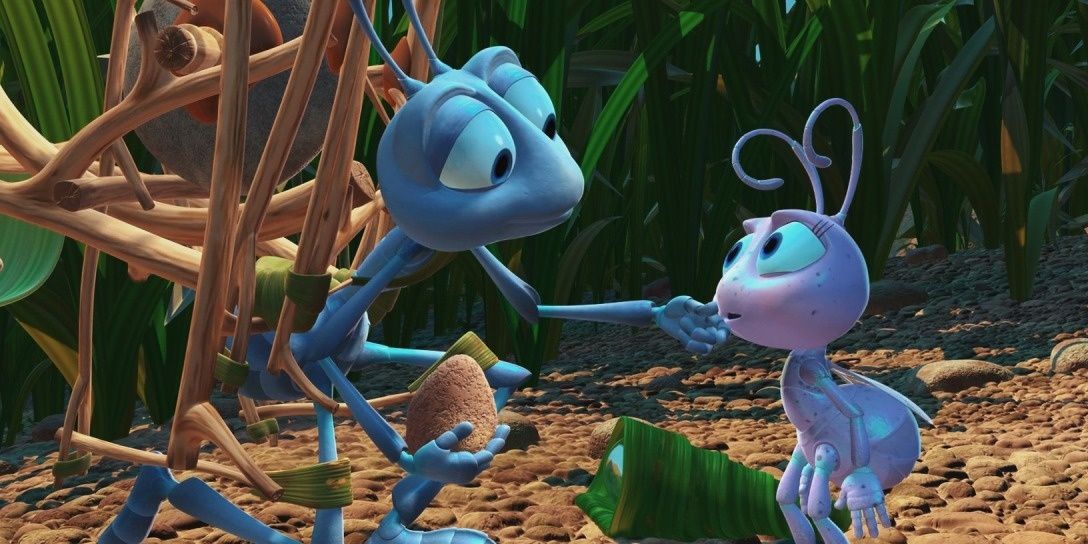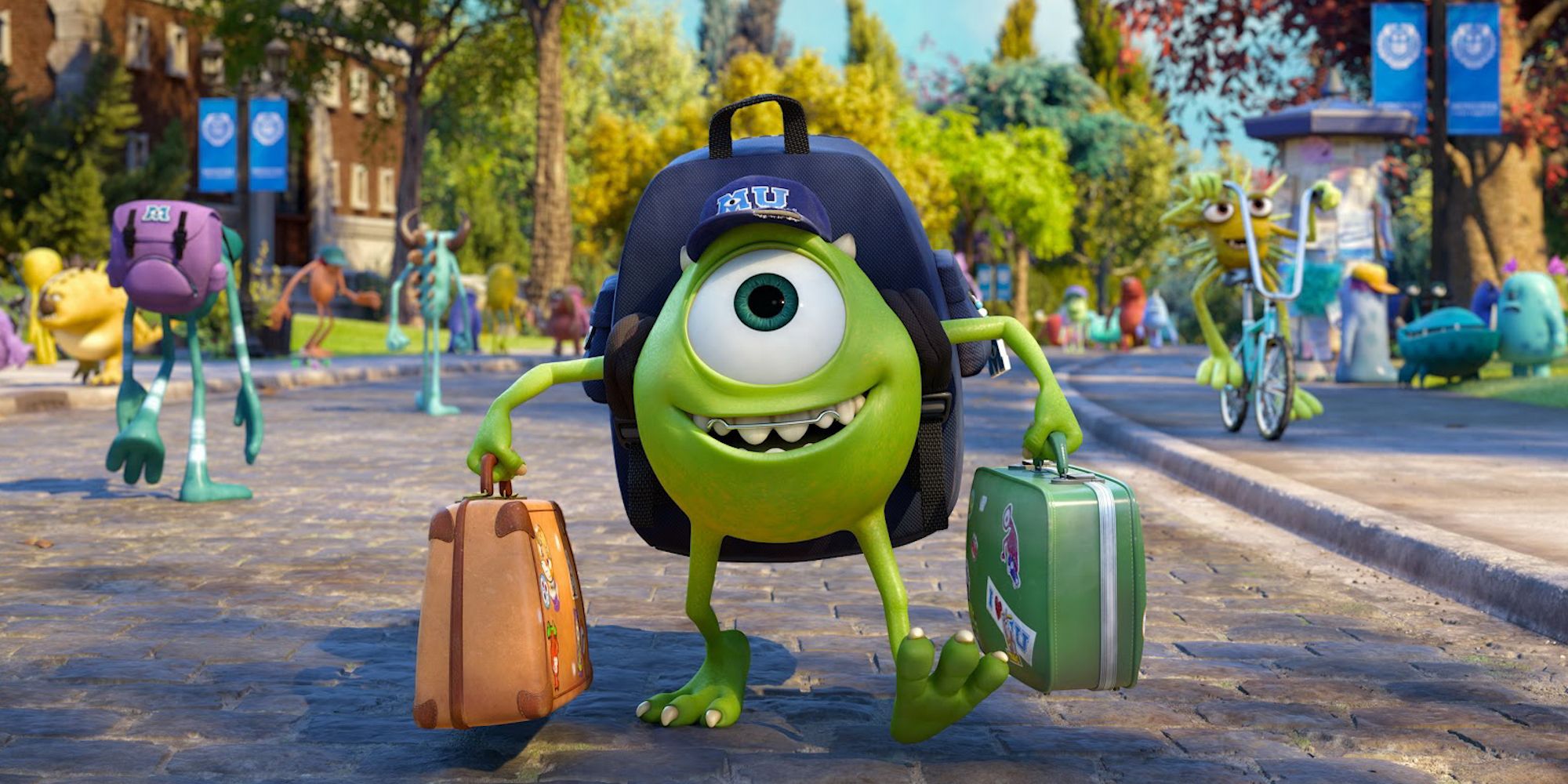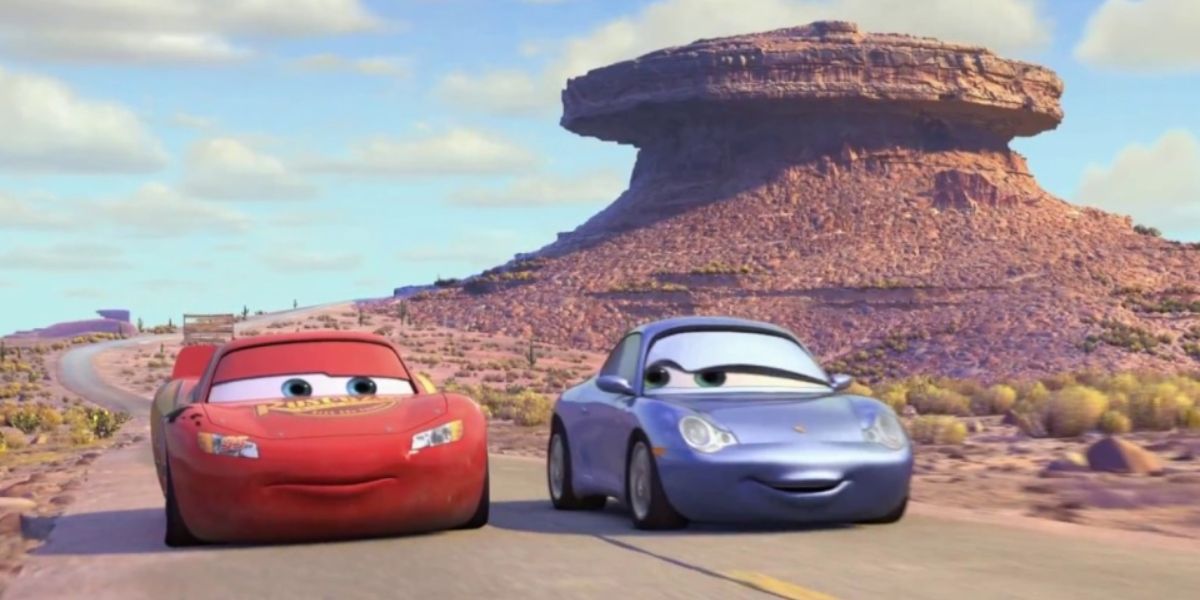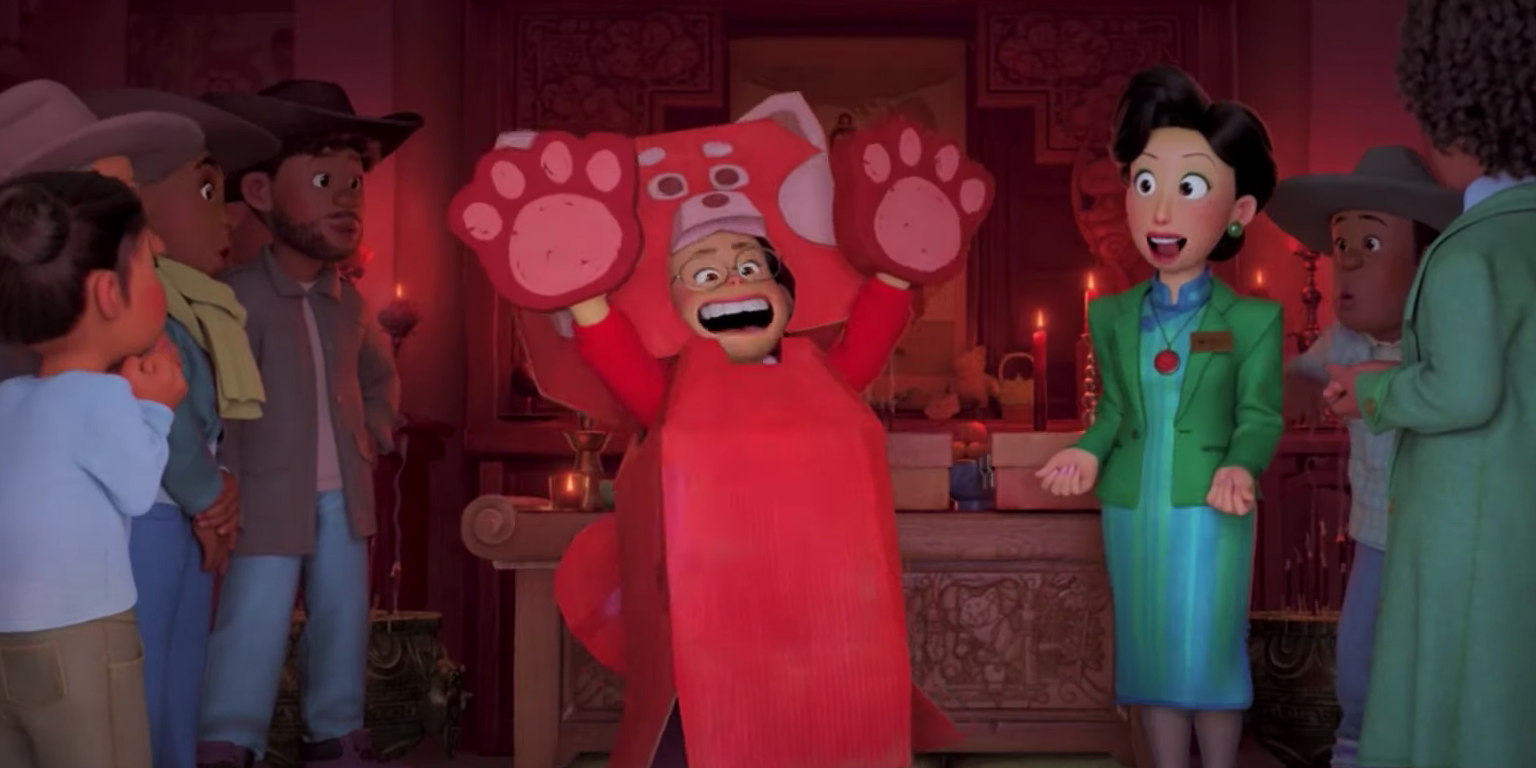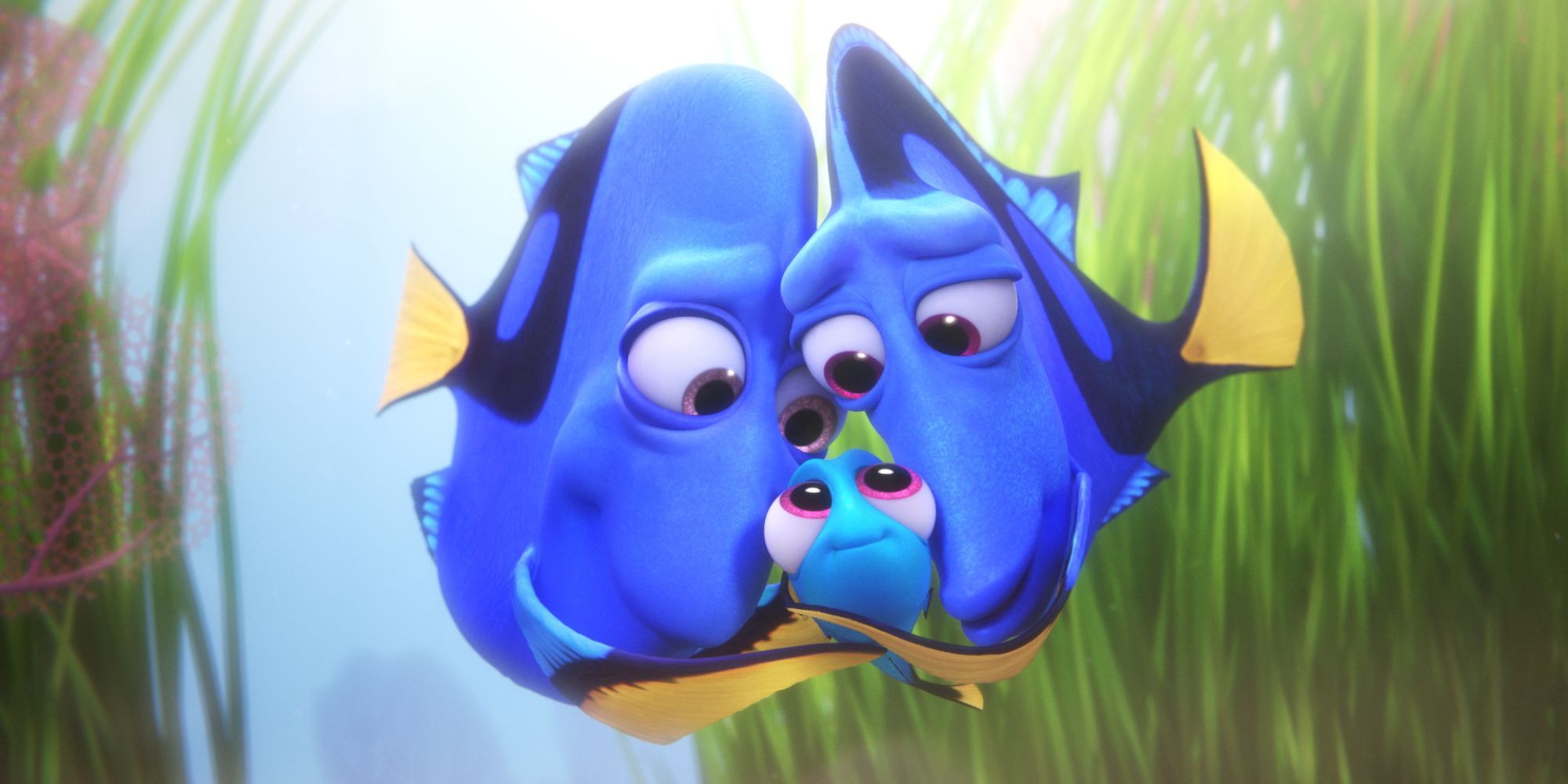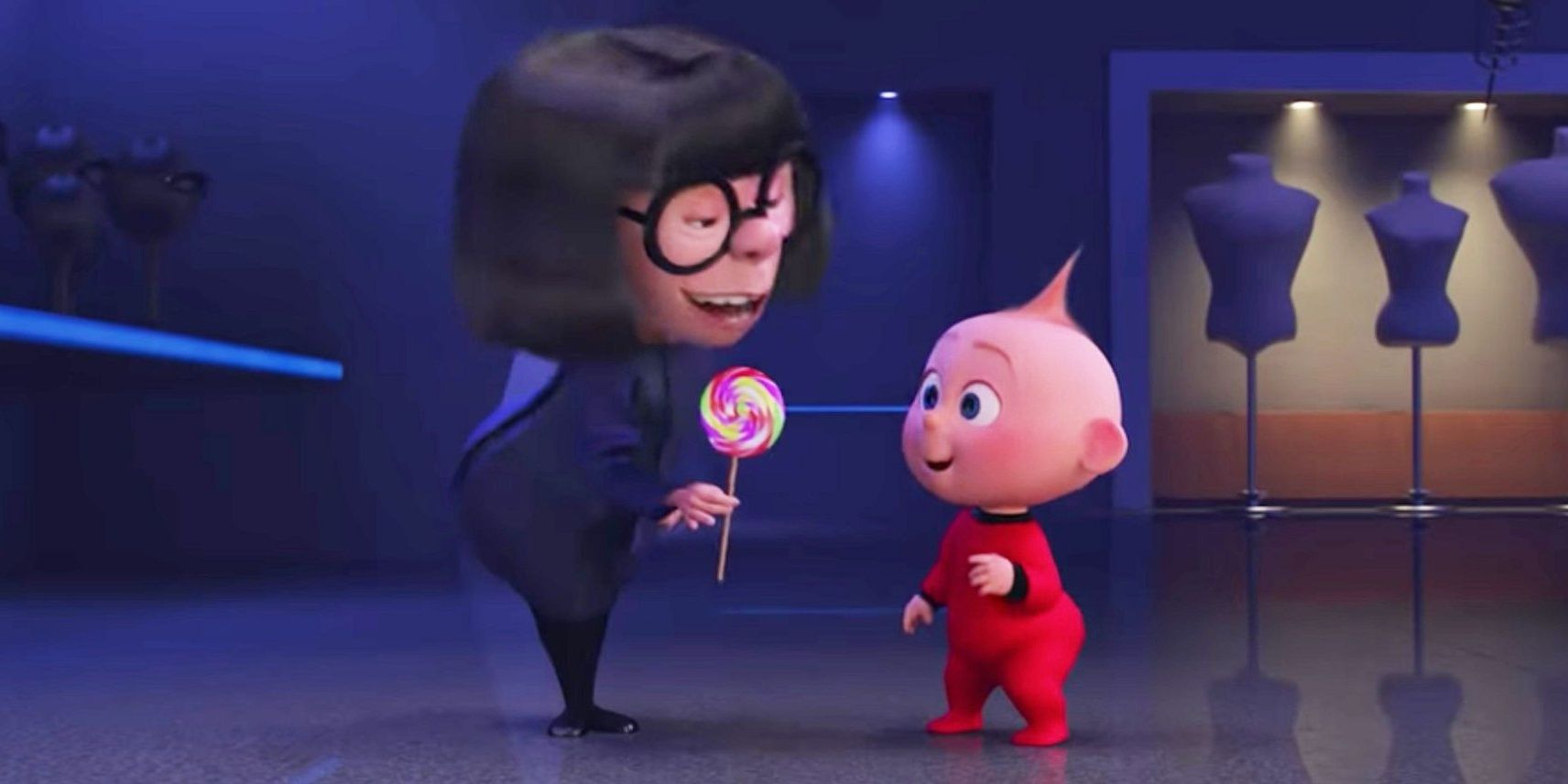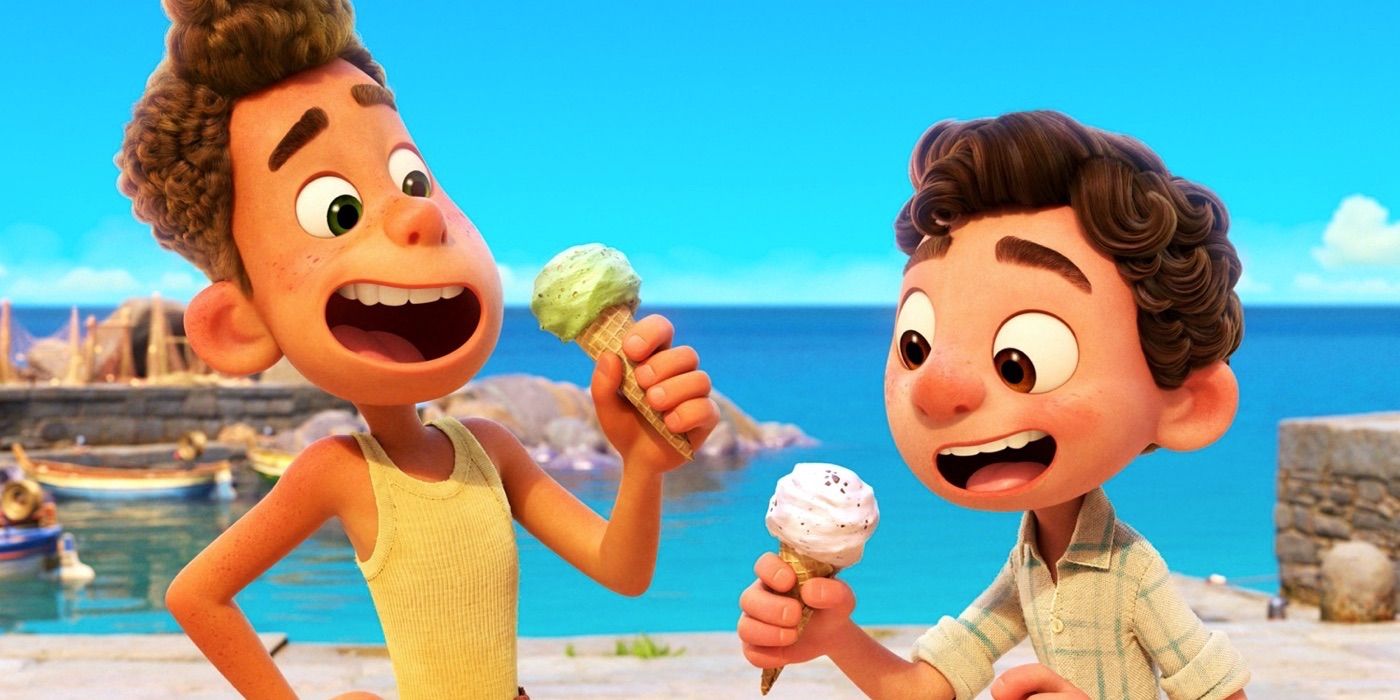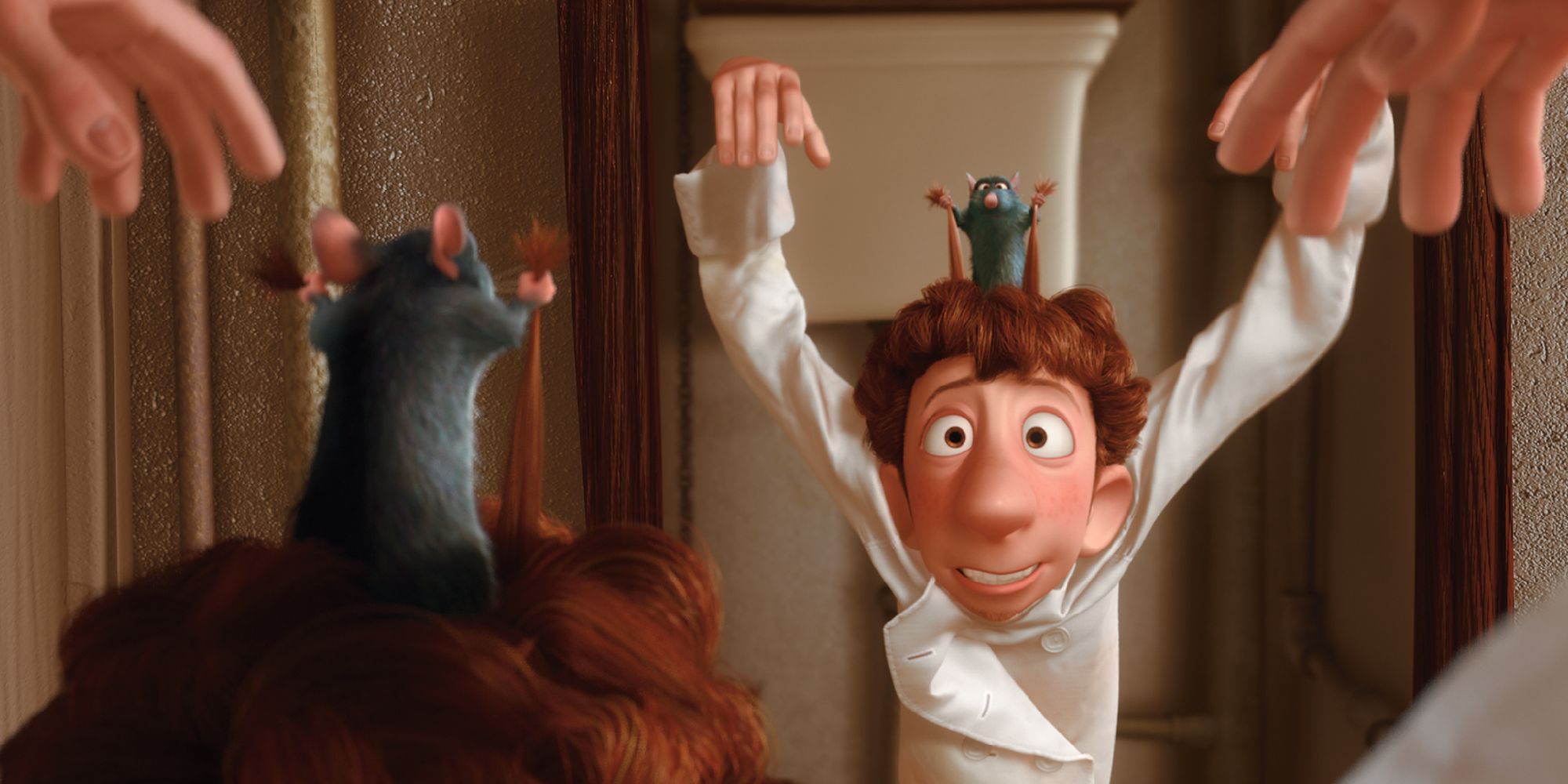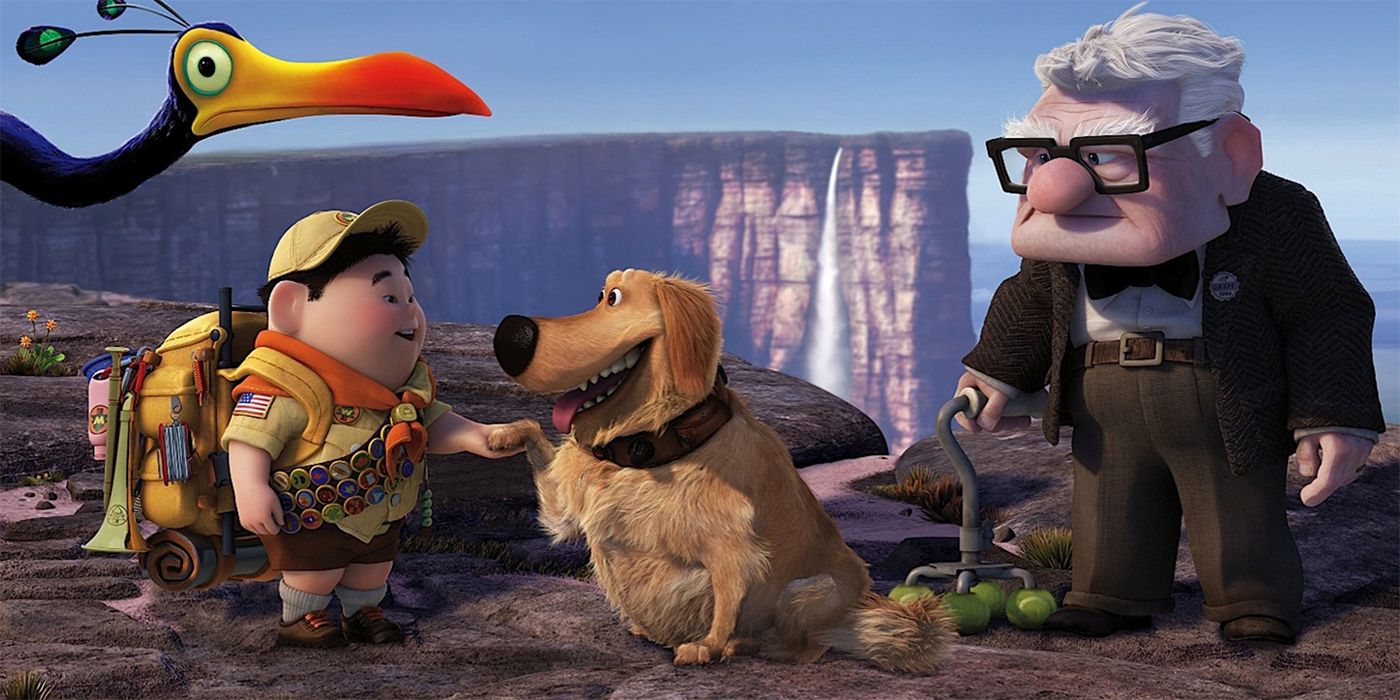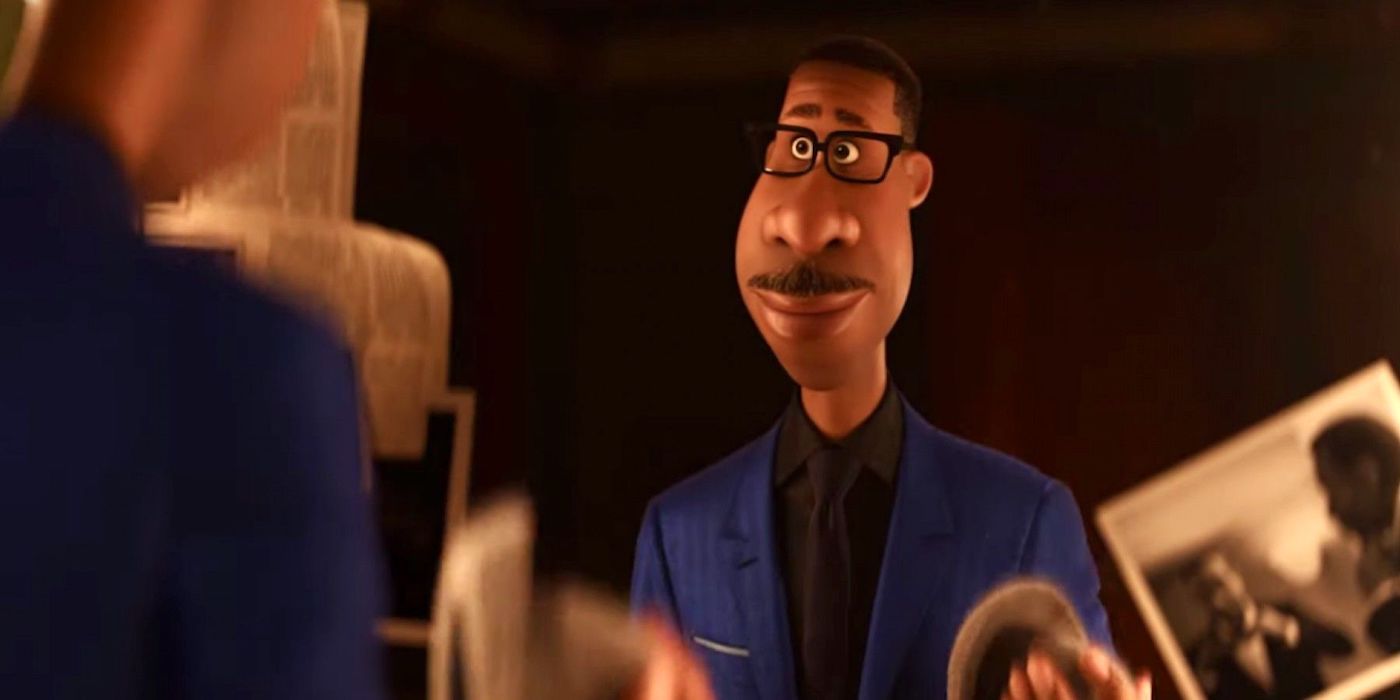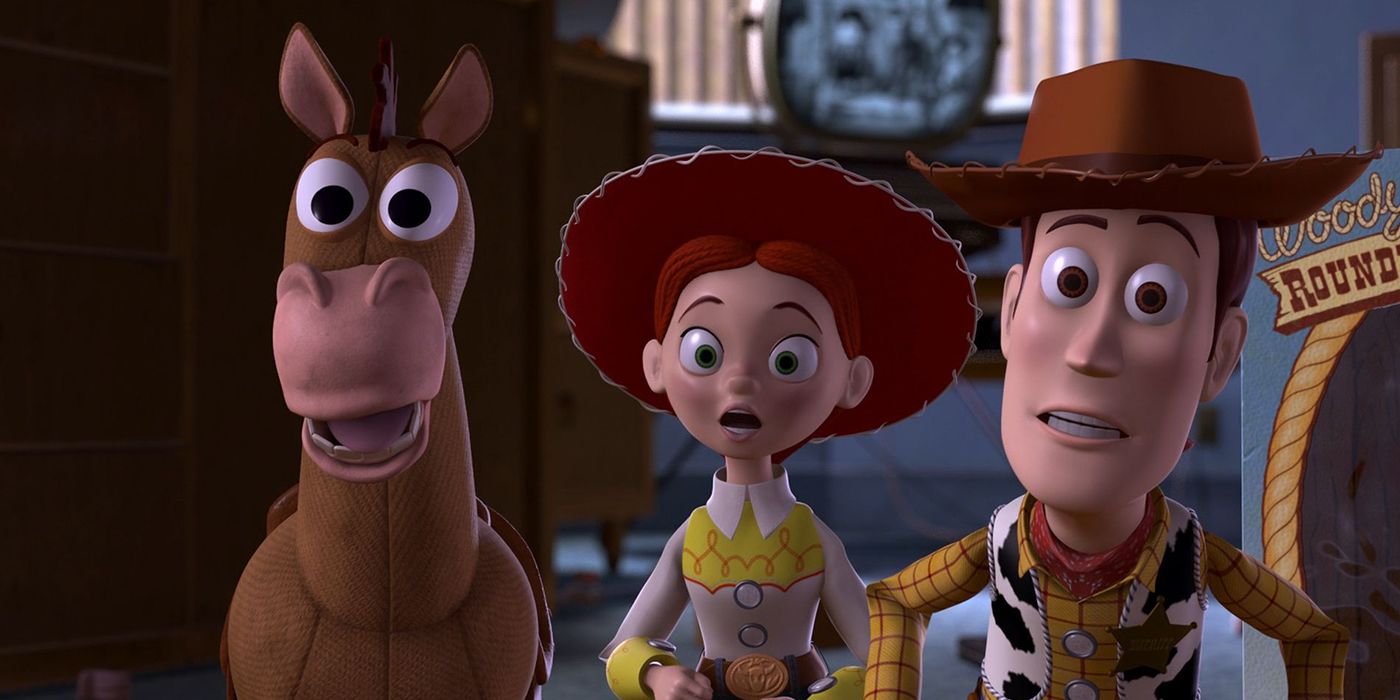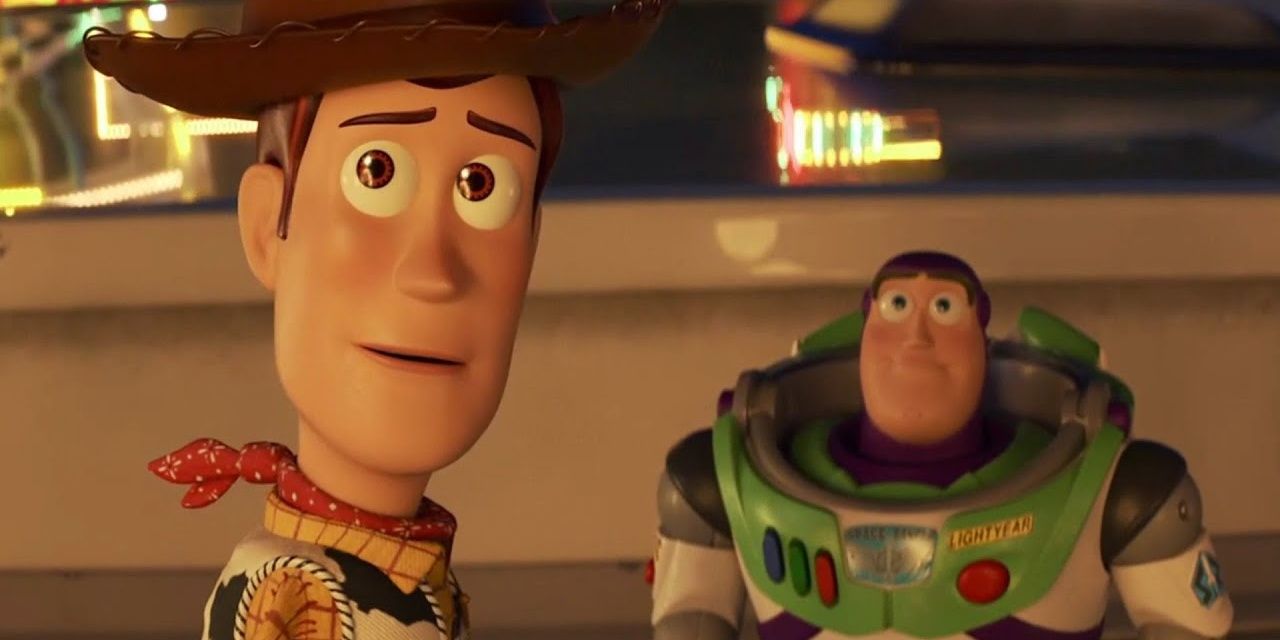The arrival of Toy Story—and by extension Pixar Animation Studios—in 1995 forever changed how we see movies. Not since Snow White and the Seven Dwarves has the medium of animation been so significantly rocked, as new technology brought colorful CG to audiences for the first time ever. Within a decade, CG would replace hand-drawn 2D animation as the dominant medium at Walt Disney Animation Studios, and the animation world would remain forever transformed.
But Pixar’s legacy doesn’t begin and end with technology. Sure, Toy Story ushered in a new visual medium, but it also shook up the animated feature film world in much more fundamental ways. Pixar eschewed the tradition of fairy tales, sing-a-longs, and overly kid-oriented storytelling in favor of a more bold and mature approach. The folks at Pixar—headed up by the future “brain trust” of John Lasseter, Andrew Stanton, Pete Docter, and the late Joe Ranft—moved forward with the idea that animated films weren’t only for kids, and kids don’t need (or want) to be talked down to. Story, character, and emotion are king, and if you nail all three without pandering, you just might have something special on your hands.
That formula was repeated time and time again, as Pixar forged ahead with what seemed to be an impossible track record of greatness. The stumbles came eventually, inevitably, but the studio is always pushing ambitious ideas. 2015 was the first time in history where we saw two Pixar films released in the same year, and now the studio is splitting its time between theatrical and Disney+ releases.
As the studio shows no signs of slowing down, now seems like an opportune time to look back at how Pixar’s oeuvre stacks up so far. Without further ado, I present a complete ranking of all the Pixar movies from worst to best.
27. Cars 2
While Pixar’s track record isn’t pristine anymore, Cars 2 is its big out-and-out failure. There’s no way around it: this is a bad movie. It’s juvenile, devoid of heart and wonder, and it feels perfunctory. Some of Pixar’s lesser films are even better than most animated movies from other studios, but not Cars 2—it’s just as bad as a lackluster effort from DreamWorks Animation. It’s tough to know what exactly went wrong here. We know Pixar is capable of making good sequels, and when John Lasseter stepped in to take over the director’s chair from Brad Lewis there was the hope that he was “fixing” things. But in the end, it appears this movie was unsalvageable. The one saving grace is that the animation is pretty spectacular. But pretty ain’t enough. — Adam Chitwood
26. The Good Dinosaur
While the 2015 entry The Good Dinosaur scored more positive reviews than Cars 2, it stands as the studio’s lowest-grossing film in history by far—which is even more striking when taking into account that Pixar films released over a decade earlier, without the benefit of 3D ticket prices, made more money. But ultimately what matters is the film, not the box office, and unfortunately, The Good Dinosaur is a complete and utter snoozefest. The picture famously went through an incredibly tumultuous production that led to director Bob Peterson’s removal and an entire creative reworking from the ground up. First-time filmmaker Pete Sohn took the reigns, and while the film’s emotional ambition is admirable, it suffers from a whiny, unlikeable protagonist in Arlo — the titular good dinosaur — and a meandering story. Which is a massive problem seeing as how Arlo commands the majority of the screentime with the dialogue-less Spot.
The movie bathes itself in Western genre tropes and aesthetics, which isn’t an issue unto itself — Pixar tackling a Western is exciting! — but again when your whole movie hinges on a protagonist as insufferably dumb as Arlo, the slower pace becomes a hindrance. From a technical perspective, The Good Dinosaur is jaw-droppingly gorgeous, although the decision to juxtapose photo-real settings with cartoonish dinosaur designs is still one of the studio's more befuddling choices. Ultimately, while the finale is admirably earnest and The Good Dinosaur’s heart is in the right place, as a movie it's an absolute chore to get through, with characters and story that are far from the tightly structured Pixar we’ve come to know and love. — Adam Chitwood
25. Brave
After first breaking out by not doing what every other animated film was doing, in 2012 it was time for Pixar to try its hand at its first-ever fairy tale. Brave was one of the more promising efforts from the studio, with a female protagonist, Scottish setting, and folklorish tone in tow. But the finished film is a movie that doesn’t really know what it wants to be. The clan stuff is convoluted to the point of becoming boring, and the “bear” twist takes the film to some odd territory.
There are moments of genuine sweetness between Merida and her mother, and the animation is some of Pixar’s best (those landscapes are gorgeous), but the story unfortunately falls short. It’s maybe too ambitious for its own good, and when director Mark Andrews stepped in to replace Brenda Chapman (who was shoved off the project), it feels like he was more interested in bombast and slapstick than the mother-daughter aspect. Which is fine—the action sequences are great—but the film feels at odds with itself as it’s reaching for too much all at once. There are genuine moments of greatness to be found, and the mother-daughter relationship is very much the heart of the film, but unfortunately Brave still feels "unfinished" somehow. — Adam Chitwood
24. Onward
Pixar has shown time and again that it really loves the "buddy movie" formula, but with Onward, that formula heavily works in the film's favor. While the story finds two brothers going on a magical quest to resurrect their father for one day, it's really a movie about siblings, and when Onward is focused on being truthful to the strained familial bond between Ian and Barley, it's at its best. The film doesn't really offer any groundbreaking insight or emotionally crushing truth bombs, and that's okay! Not every Pixar movie has to be Inside Out. And director Dan Scanlon beautifully builds out this fantasy world with gorgeous, fascinating detail and plenty of humor. The finale is emotionally surprising in the best way, and Chris Pratt and Tom Holland are perfectly cast. Is Onward a Pixar masterpiece? No, but it's also not a disappointing or lacking effort from the studio either. Sometimes a familiar story told well and with passion is just what the doctor ordered. Onward is comfort food for siblings and/or fantasy nerds in the best way. — Adam Chitwood
23. Lightyear
Pixar has managed to make its four Toy Story films each feel essential and important to the story in their own ways, but the studio might've gone a bit too far with Lightyear, which is the movie that Andy saw as a kid that inspired the Buzz Lightyear toy. It's a shame that Pixar decided to make what the hell this even is convoluted, when at its core, Lightyear is a charming, fun story on its own. Chris Evans is charming as this version of Buzz Lightyear, and his personal journey where he tries to trust others as much as he trusts himself works well for the character. But beyond a few sly references to the Toy Story franchise, there's truly no reason for this to be Buzz Lightyear, or have a weirdly confusing connection to the existing character. Lightyear is solid on its own, without having to tie it into already existing IP. — Ross Bonaime
22. Elemental
The first Pixar original to come to theaters in over three years, Elemental has moments that feel like Pixar in their heyday, yet also has moments that remind of the company's recent weaknesses. For example, the scene between Ember (Leah Lewis) and Wade (Mamoudou Athie) where they first touch is astounding, and feels like it could be a major Pixar moment, had it occurred in a better film. But Elemental is also a film that tries to do too much, which has been a common complaint in other recent Pixar films, as the first half drags into weird bureaucracy, while the central metaphor gets lost and forgotten by the end of the film. But even though Elemental is flimsy in ways, it's the positives that stand out, as Pixar's first love story is often wonderful, and the story of Ember and her parents once again feels like Pixar at their best. At a period where the greatness of Pixar is being questioned, Elemental is a mixed bag, but at least it has scenes that showcase that Pixar can still be truly great. — Ross Bonaime
21. Cars 3
Cars 3 is a fine movie. It's not Pixar's worst, but it's certainly not up there with the studio's best. The first half of the film is fairly rote and, frankly, boring as it follows the "comeback story" narrative found in plenty of other sports movies, but it's in the film's second half where it starts to shine a bit. Cristela Alonso is a swell addition to the ensemble as Cruz Ramirez, whose character provides a refreshing foil to Lightning McQueen's confident machismo. The animation here too is some of Pixar's best. Director Brian Fee brings to life some of the most vivid environments we've ever seen in a Pixar film, and sequences in the latter half of the movie offer up some genuine dynamism for the Cars franchise's palette.
Thematically, however, Cars 3 is a bit of a conundrum. Its main drive is essentially a story about legacy and retirement, and choosing when you go out on your own terms. That's not exactly a universal theme for those under the age of 13 (the core demographic here) and it's a bit of a head-scratcher as to why it's leaned on so heavily. There's another theme about acceptance, representation, and beating the odds that comes towards the latter half of the film that's more successful and more relatable, but the core drive of Lightning's retirement is still an odd choice of material for this sequel. Ultimately, Cars 3 seems destined to be one of those middle-of-the-road forgettable Pixar pics. Again, it's certainly not a bad movie, but it'd be stretching to say it's a great one. — Adam Chitwood
20. A Bug’s Life
Toy Story was a massive success, but while in production, the folks at Pixar didn’t know that it was going to work, let alone whether they’d ever make another CG film. Their follow-up effort, A Bug’s Life, feels like the studio still trying to figure out what kinds of movies it makes, and as a result, their sophomore feature is less inspired than their first film. It’s adequate enough — it’s not a bad movie — but it’s possibly Pixar’s most forgettable. “Oh yeah, A Bug’s Life. That movie’s fine,” is a common refrain, but no worries — Pixar recovered and solidified its status as a force to be reckoned with in its next two features. — Adam Chitwood
19. Monsters University
Pixar’s first prequel — a result of the studio’s agreement with Disney that saw Pixar creating one prequel/sequel for every two original films — had the advantage of starting with some of the studio’s most beloved characters and throwing them into a setting Pixar had never tackled before: college. The results are quite good, and kudos to director Dan Scanlon and his team for pulling off the ballsy message of “You can’t be whatever you want to be.” The movie is funny and full of great character designs, and the message is solid, but there’s something about Monsters University that holds it back from greatness. It could simply be that it was released during a period in which Pixar’s track record was most definitely broken—Cars 2 and Brave were nowhere near the levels of greatness we’d come to expect, and few thought Monsters University would be the film to get the studio back on track.
But Pixar’s phenomenal streak in the late 2000s gave us three incredibly emotional films, and while Monsters University is somewhat moving, it lacks the tear-jerking pull of the studio’s most memorable efforts. Perhaps that’s why it didn’t quite leave a strong mark on audiences. — Adam Chitwood
18. Cars
Cars is the Pixar movie that you think you hate, but is actually kind of okay. In retrospect, the stink of Cars 2 might have something to do with that, but you know what? It’s not that bad. The problem with Cars is that it lacks significant stakes, so there’s not really a huge sense of momentum. But that’s kind of in keeping with the film’s laid-back tone. The scenery is gorgeously crafted, and while the characters aren’t especially memorable, they’re nevertheless endearing. There’s still the haunting question of “Where the hell are all the people? Did the cars eat them? Why are there door handles?” and the movie has one too many endings, but exploring the loss of America’s working class is actually one of the studio’s most interesting themes, and the laid back, Americana-soaked tone is a refreshing change of pace. It’s alright to admit it: Cars is a sweet and perfectly OK movie. — Adam Chitwood
17. Turning Red
When it comes to coming-of-age stories, Pixar has really perfected the formula but Turning Red introduces so many new concepts that we have yet to see in a Pixar film.
From the honest look at a Chinese Canadian family to the female friendships the movie is built on, Turning Red is about so much more than growing up. Director and co-writer Domee Shi, best known for her work on the award-winning short Bao, tells a story about a girl named Meilin "Mei" Lee (Rosalie Chiang) who is caught between the freedoms that come with adolescence and also the obligation and filial piety she feels she owes her mother (Sandra Oh). One day, after a particularly traumatic event, she wakes up in the form of a giant red panda.
As a metaphor for puberty, the movie even mentions menstruation (another first time for Pixar), Mei's life is turned upside down when she finds out that this is actually a blessing passed down from her ancestor. Whenever she feels an overwhelming amount of emotion, she can panda-out. As Mei and her mother's relationship develops and struggles, Mei finds solace and comfort with her friends. Obsessed with the hottest boy band, 4*Town, the girls are desperate to go to their concert and love the idea of using Mei's newfound powers to earn a little cash with a side hustle. Funny, fresh, and with a protagonist who breaks the fourth wall, there is a lot to love in Turning Red. Like Luca, it finds itself relegated to Disney+'s premium subscription rather than seeing a theatrical release, which is a major disappointment. — Therese Lacson
16. Finding Dory
Finding Dory is resoundingly fine. It doesn't feel like a shameless cash grab, but it's also not full of the vigor and originality that permeates Pixar's best sequels. Co-writer/director Andrew Stanton does a solid job of finding a different kind of story angle here, this time telling the story from Dory's point of view, and while the Finding Nemo follow-up certainly introduces memorable new characters and offers a new setting, there's something about it that just feels...average.
Where Dory shines is in telling a story about living a full life with a disability. Pixar has a knack for thematic throughlines, and Dory is no different as the film leans into Dory's short-term memory loss while introducing a host of other aquatic life with a variety of developmental disorders. The ultimate message is that while disabilities may hinder some aspects of someone's life, they also grant gifts in other ways. It's a nice sentiment, and one that's a refreshing change of pace for the family film genre, and Stanton's handle of this particular throughline is solid.
It's hard to nail down aspects of Finding Dory that fall short. There's really not much that's bad about the film, it's more that it just feels like an extension of Finding Nemo rather than an exciting and fresh new story. And since Nemo kind of nailed everything about sealife from a Pixar/animation perspective, there's not much new that Dory brings to the table aside from the thematic heft. It's certainly not a bad Pixar film, but it's also not a particularly memorable one. — Adam Chitwood
15. Incredibles 2
Instead of charting new territory and leaving the DNA of the first film behind, Incredibles 2 picks up literally minutes after the first film ended, and tells a story that's squarely focused on deepening the characters we grew to love in writer/director Brad Bird's 2004 superhero pic. Indeed, it's the family that really shines here as Bird gives Helen room to breathe and explore on her own, while Bob is left to play Mr. Mom. Both characters have interesting, evolving arcs in which Helen learns to trust her family to help take care of each other, while Bob learns just how difficult raising and taking care of a family really is.
On top of all that, Incredibles 2 is far and away the best action movie Pixar has ever made, with Bird crafting show-stopping set pieces that are masterclasses in geography and structure. Bird knows a great action set piece isn't about how big the explosion is, but how impactful it is to the characters involved, and so we get a series of really terrific sequences that show a dynamic range of exciting visuals. Jack-Jack, obviously, is the MVP here, as Bird and his animating team have an absolute blast playing with all of the toddler's powers in hilarious ways.
And yet, Incredibles 2 still doesn't quite feel like "top tier Pixar" material. Bird throws a lot at the wall here thematically — society's addiction to screens, evolving gender dynamics, and even a little bit of Randian "over-reliance on the government to solve everyone's problems" — but none of it sticks in a truly impactful way. The film has a lot on its mind, and it certainly brings up interesting points of discussion, but it's frustrating to see that most of that discussion simply peters out rather than coming to a finite point. And as a result, the film overall is a little forgettable.
But when you're actively watching Incredibles 2, it's a blast. — Adam Chitwood
14. Luca
In many ways, Luca feels like nothing Pixar has done before. The stakes are refreshingly low (relatively speaking), the world is pretty self-contained, and in this movie it's subtext rather than text where it really gets its power. Director Enrico Casarosa may claim the film is merely about friendship, but at heart this movie derives a lot of power from the homosexual love story at its center as a young sea monster meets another young boy who changes his life forever. The film doesn't go full Call Me by Your Name, but themes of seeking acceptance and finding your own band of outsiders ring true, as does the gut-wreching finale. But even beyond all of that, Luca is really lovingly animated, boasts one of Pixar's best scores (thank you Dan Romer), and is extremely comfortable telling a story about two young boys trying to win a race in a small Italian town. There's no world-ending matter to be solved, nor some fantastical mythology that's uncovered. Sometimes story in its purest form can be tremendously powerful, and that's certainly the case with Luca. It's just a shame this one was relegated to Disney+ and couldn't be enjoyed on the big screen. — Adam Chitwood
13. Coco
Pixar has undoubtedly lost some of its shine since its golden years, but Coco is as strong a picture as any that Pixar's made — a wholly original, absolutely gorgeous, and yes tearjerking affair that transports viewers to a world full of wonder and heart.
The latter is the soul of Coco, as Toy Story 3 director Lee Unkrich's second solo effort is all about family. He wisely immersed himself and the filmmaking team into the Mexican culture, specifically as it relates to Dia de Los Muertos, and the resulting film is one about embracing family in spite of your differences and working to understand each other on a deeper level. This movie has a huge heart, and in that regard, it gets back to what Pixar is so good at: compassion. Compassion for strangers, for outsiders, for those different from you, but here it turns that on its head and zeroes in on compassion for your own family.
The filmmaking here is pretty outstanding, offering up Pixar's most colorful and intricate visual affair yet. Moreover, the original songs are both memorable and moving, and composer Michael Giacchino crafts a score that stands separate from the original songs, but still feels vital to the movie as a whole. It's also funny! Basically, this is classic Pixar, which unfortunately has become a rare case as of late. More of this, please. — Adam Chitwood
12. Ratatouille
Quite possibly one of the most important films to Pixar, Ratatouille was in the development stages when the relationship between Pixar and Disney was at its most contentious, and Pixar was actively seeking another distribution partner. Because of this, 2007’s Ratatouille could have been the first non-Disney effort from Pixar, so the animation studio wanted to make sure they got this one absolutely right. The film also proved that Pixar could weather production difficulties and a change in director without Lasseter himself taking over, as Brad Bird was enlisted to rework the picture following the departure of Jan Pinkava.
The result is one of Pixar’s most “grown up” movies. It’s not often you hear kids clamoring for more Ratatouille merchandise, but Bird and Co. crafted a delicious-looking feature that — taking a cue from its thematic throughline — is not afraid to stand out in a crowd. The theme that "anyone can cook" is perfectly realized, and the marrying of the two subsets of characters—the humans and the rats—works beautifully. — Adam Chitwood
11. Up
Though one of Pixar’s earlier efforts had also ventured into new territory by tackling a highly emotional story point upfront, Up takes the cake for the earliest “bawl your eyes out” moment. The opening montage of Pete Docter’s colorful and sweetly sad adventure film is not only one of the most emotionally impactful sequences in the history of animation, but also one of the most mature. Audiences young and old equally understand the importance of what’s happening without the need for dialogue or voiceover narration, which speaks to the talent of Docter and his team.
While Up fails to match that emotional high (or low) point in the rest of its story, the film still succeeds as a delightful mismatched buddy picture/tale of loneliness that also eschews tradition in favor of breaking new ground with its geriatric hero. — Adam Chitwood
10. Soul
Soul is the most ambitious, most mature film Pixar has made to date, and that’s saying something. The studio has a knack for crafting films that speak emotionally to kids as well as humans, but Soul dares tackle the one subject most other films (animated or not) wouldn’t touch with a ten foot pole: what’s the meaning of life? It is heady subject matter and it’s a miracle that Soul works as well as it does. The film really digs deep into the idea that life is what happens while you’re making plans, underlining the notion that if you spend your whole life waiting for it to begin the way you’d always dreamed, you’ll miss it.
It’s a really tricky thing to visualize as well, and director Pete Docter and co-director Kemp Powers do a pretty swell job of bringing the afterlife to life in a manner that’s believable but doesn’t feel too outlandish or specific. The Great Beyond also gives Docter’s team of animators room to get experimental with the design of the film, and indeed from a craft perspective Soul is one of Pixar’s best. From the unique styles of the Soul Counselors in the Great Beyond to Trent Reznor and Atticus Ross’ all-timer score (with brilliant jazz compositions by John Batiste). It’s a wealth of riches for the senses, which makes it all the more upsetting this film couldn’t be seen in theaters.
The only ding I have against Soul is I don’t quite think it nailed the tonal balance completely, as it morphs into a body swapping buddy comedy on Earth and takes a few detours that hinder the pacing a tad. But throughout, even when it’s not working quite as well as in other parts, it’s brilliantly admirable. The structure is more James L. Brooks than fast-moving animated adventure as it’s a film that’s more concerned with these big ideas than action sequences or getting laughs, and in that regard it feels like a uniquely mature film from Pixar. I would not be surprised if this one rises in the ranks upon subsequent rewatches, but for now it’s firmly in the Top 10. — Adam Chitwood
9. Toy Story 2
Ranking the individual Toy Story films is tough. The first three are flat-out great, and Toy Story 2 impossibly so. The film was entirely reworked just months before release, with John Lasseter taking over as director and crafting a completely new story that riffs on the culture of toy collectors while also expanding the Toy Story mythology in a way that feels organic. Moreover, the “When Somebody Loved Me” sequence laid the foundation for the emotionally tough territory that Pixar would continue to mine in its subsequent efforts. — Adam Chitwood
8. Toy Story 4
Right out of the gate, Toy Story 4 had to prove it was worth existing. Toy Story 3 capped this iconic franchise in an emotionally satisfying way, and so audiences were wondering what a fourth entry could possibly bring to the table. As it turns out, there are some substantial aspects to Toy Story 4 that make it worthwhile, even if it ultimately falls short of the greatness of the first three movies.
Toy Story 4 tells the story of what happens when you feel your life's purpose is complete, and how sometimes new chapters reveal themselves only when you're willing to let go of the past. It is, in true Pixar tradition, a challenging message but one very much worth telling, and the film's antagonist Gabby Gabby is one of its best ever (maybe the best Toy Story villain ever?). The Woody/Bo Peep relationship evolves in exciting and surprising ways, and Forky is just a piece of pure brilliance. Indeed, with the spork character, Pixar enters existential territory to hilarious and thoughtful results.
The film does at times feel like it's juggling too much, and the story simply cannot find anything meaningful for many of the iconic Toy Story characters to do—including Buzz Lightyear, who gets the biggest cold shoulder. But this is a story about moving on to new stages of life, so it's not especially egregious, and director Josh Cooley shines in threading the stories of the new characters together in a thematically satisfying way. — Adam Chitwood

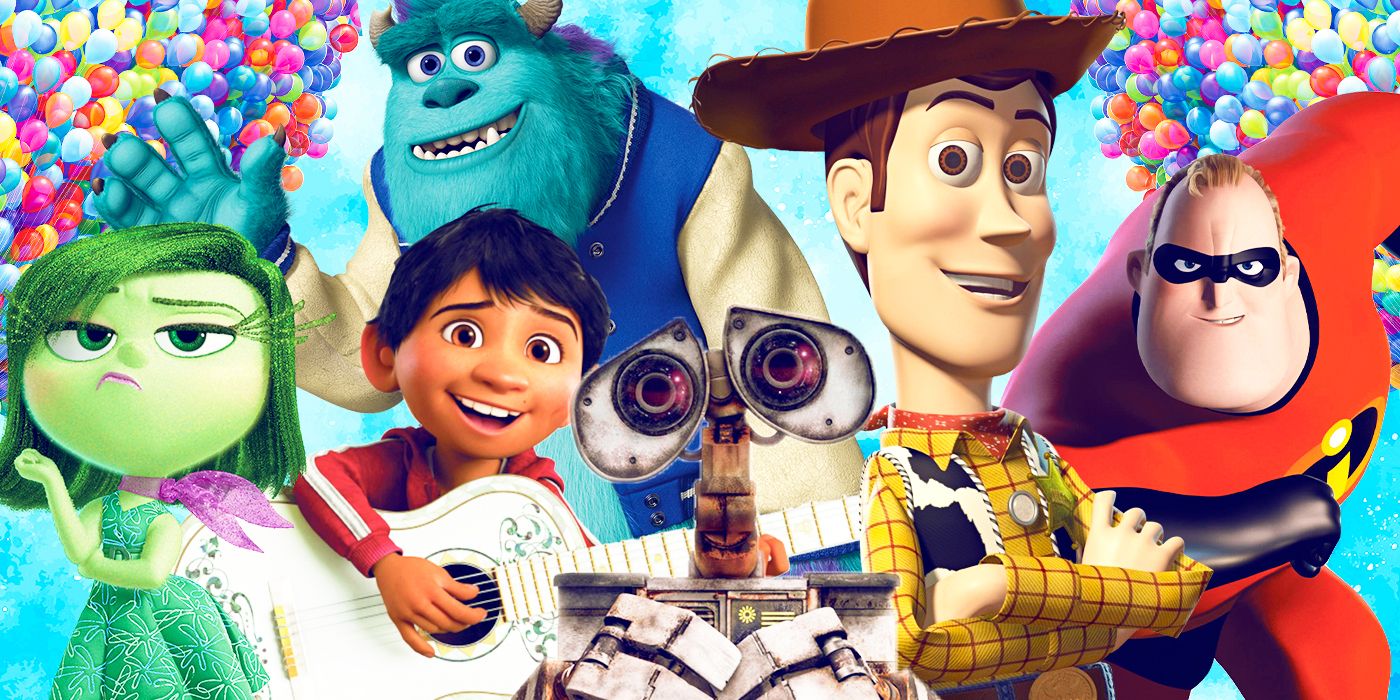
.jpeg)
